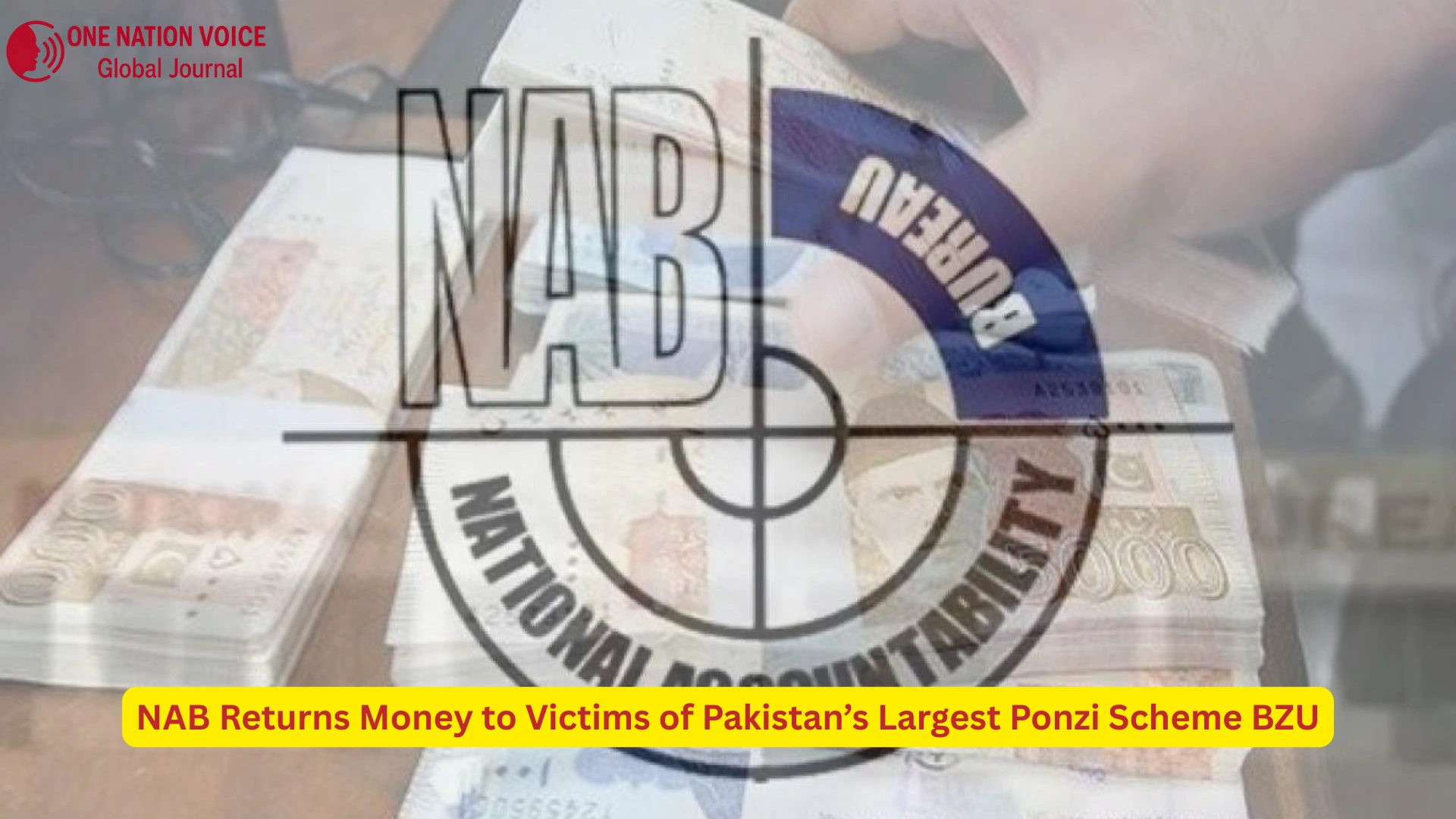NAB Returns Money to Victims of Pakistan’s Largest Ponzi Scheme BZU

NAB Returns Money to Victims of Pakistan’s Largest Ponzi Scheme BZU
The victims of the biggest Ponzi schemes in Pakistan, such as the infamous BZU scheme, have received their money back because of impressive actions taken by the National Accountability Bureau (NAB). By paying thousands of people who lost their hard-earned money in fraudulent investment schemes, the authorities are making a major attempt to rebuild public trust. The allocation of recovered funds shows NAB’s dedication to thwarting corruption and safeguarding the public interest.
Distribution of Funds to Victims of Major Fraud Cases
In 2025, NAB Lahore began allocating a total of Rs 512 million among hundreds of victims involved in three major corruption cases, including prominent Ponzi schemes hidden as authentic investments. Specifically, in the Double Shah scandal alone, Rs 404 million was distributed to affected individuals. Alongside that, Rs 104 million was sent to victims of Toyota Gujranwala Motors’ fraud and Rs 3.6 million to those harmed in the housing society case of Ahmed City. NAB ignored formalities such as stamp paper requirements to ease cheque collection for victims, emphasizing instant and fair compensation. The Lahore office has adopted a zero tolerance policy towards illegal housing societies and Ponzi schemes, emphasizing ongoing operations against fake entities exploiting the public under the pretense of high returns.
Record Recoveries and Wider Impact
NAB’s efforts in 2025 have seen record-breaking recoveries with Rs 547 billion reclaimed from various corrupt sources in just the first six months. Movable and immovable property valued around Rs 532 billion have been returned to federal and provincial institutions. Additionally, over 12,600 victims in different fraud cases received their misappropriated funds back, marking a historic scale of restitution. In the BZU Ponzi scheme, NAB of Rawalpindi was active in recovering Rs 3 billion, which profited more than 17,000 victims. These retrievals show how the NAB is loyal to giving back stolen wealth to its legal owners and how aggressively it pursues those who cheat the public.
Challenges and Lessons from Ponzi Schemes
Ponzi schemes in Pakistan, such as the Modaraba fraud and the schemes connected to BZU and Punjab University, have deceived thousands of people by making false claims of safe investments or sharia compliance while offering immensely high returns. In order to initially seduce investors, these schemes pay out fictitious profits financed by new investments. They eventually collapse, cheating investors who are then looking for compensation. In order to halt similar scams in the future, NAB’s interventions and public awareness campaigns are still necessary. The key challenge is notifying the public about the risks of fraudulent schemes and keeping an eye out for deceitful business practices, even though the restriction on these schemes often results in halts and the recovery of money for victims.
An imperative sketch of liability and justice in Pakistan is the continuous effort of NAB to find, investigate, and shut down Ponzi schemes and lying investment operations. The billions it has recovered reinforce the efforts of NAB to eliminate financial fraud and dishonesty and the money it has returned to thousands of victims. In addition to providing economic assistance, these initiatives increase public trust in the legal system and regulatory framework of Pakistan. Stringent implementation, the cooperation of victims, and ongoing awareness will be necessary to totally eradicate Ponzi schemes and protect citizens’ financial interests going forward.
For more in depth coverage, expert analysis, and exclusive visuals, visit One Nation Voice . Join the conversation, explore our archives, and be part of a global community shaping tomorrow’s headlines.
For More Upcoming Update Stay With Us Onenationvoice.com
Disclaimer:
The views and opinions expressed in this article are exclusively those of the author and do not reflect the official stance, policies, or perspectives of the Platform.












